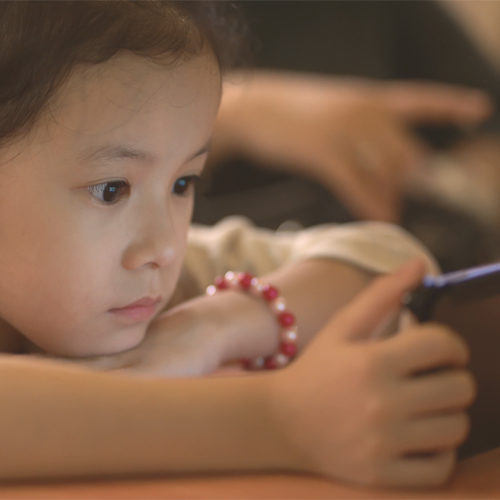How screen time affects your child

With various educational media readily available for free on our mobile devices, we face a dilemma when deciding on a limit of screen time.
On the one hand, screen time without limits leads to physical inactiveness and emotional problems for your child. On the other hand, if used properly, electronic media can be beneficial for children. This largely depends on the parents’ role in controlling screen time quality, particularly the level of interaction involved during screen time.
Potential problems from screens
The World Health Organization (WHO) strongly encourages a daily routine that includes different forms of physical activity such as playing because children learn better from real-life experiences than videos. Not only is playing constructive to their social and cognitive development, but it also decreases the risks of obesity.
The prevalence of overweight or obese children worldwide has increased drastically over the past decades, and inactivity has played a large role. Poor quality screen time, which includes allowing Your Child to spend time watching animations without supervision, or without any restrictions, can also lead to other problems such as:
- Sleeping problems or shorter sleeping times: The light from screens before bedtime can be harmful to your child’s sleep pattern
- Behavioral problems: Behavioral problems from poorer abilities to deal with and express emotions that are a result of prolonged sedentary activity per day, such as watching TV
- Educational problems: Statistically, children who don’t have a TV in their room generally do better at school
- Violence: If there is no controlling what your children watch, they could imitate whatever they see on screen
How much screen time is bad?
Apart from video chatting with family and friends, which involves social interaction, screen time should be as limited as possible during the early years of childhood, like the following:
- Younger than 18 months: Babies this age are discouraged from having screen time.
- Between 18 – 24 months: You should watch with your children, including only high-quality media.
- After 2 Years: The screen time should be limited to 1-2 hours per day of high-quality media.
Setting a Balance
While it is required to regulate screen hours, there is no exact limit applicable to all children, as each individual may live in different situations and have unique needs. Screen time can be quality time and does not necessarily displace all chances for your child to learn anything if parents can balance quality screen time with playing, reading, and interacting time for their child. Then electronic media can actually become a good part of a healthy lifestyle.
What is quality screen time?
Quality screen time includes anything that benefits your child either in their learning or behavior, especially if it helps enhance their imagination. For example, if your toddler grows older and is interested in drawing, many apps open the opportunity to express their ideas through various formats. Parents should share screen time and interact with their kids to get the most from this learning experience.
Also, watch videos that promote a good attitude, such as caring, kindness, respect, and sharing. Then discuss with Your Child about the story. For example, you can talk about a character with good behavior. In choosing programs or videos, try to avoid content with anger and violence, and choose the ones that show basic scenarios for you and your child to apply in real life, such as animals or food.
Managing time
You should set rules where screen time doesn’t interfere with Your Child’s sleeping routine and set an age-appropriate filter for content. A helpful way is to use parental controls for blocking unwanted internet content and limit screen time.
All in all, creating a balance according to each child’s needs can be a challenge, but if you are consistent in ensuring there are limitations to screen time, it can be a lifelong beneficial tool for Your Child.
Verified:
Dr. Prapasri Nuntnarumit (Developmental psychologist) (31 March 2021)



